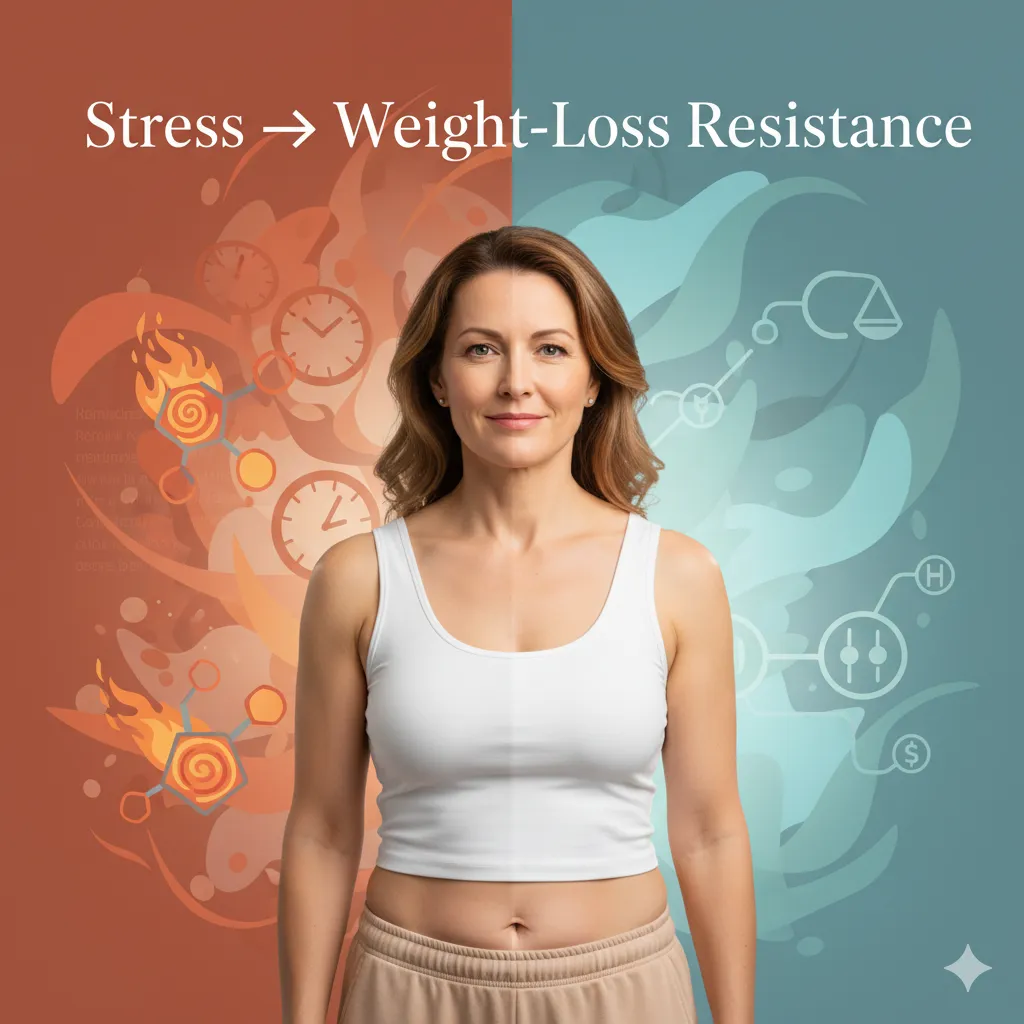
Why Stress Creates Weight-Loss Resistance for Women Over 40
For many women in their 40s and 50s, weight loss starts to feel like pushing a stalled car uphill. You eat cleaner, you work out harder, you cut carbs, you try fasting… yet the scale barely moves. The truth is, it’s not a lack of effort — it’s a shift in physiology. And one of the biggest drivers of that shift isstress.
How Stress Changes After 40
As estrogen and progesterone naturally decline, the body becomes more sensitive to stress. Hormones that once kept cortisol in check are now fluctuating, which means your stress response is stronger and lasts longer. That “wired but tired” feeling? That’s cortisol staying elevated when it should be settling down.
Cortisol & the Metabolic Chain Reaction
Cortisol isn’t bad — it’s necessary. But when it stays high day after day, it disrupts nearly every pathway involved in fat loss:
Blood sugar becomes harder to regulate
Fat is stored more readily around the midsection
Muscle breaks down faster, slowing metabolism
Cravings increase, especially for carbs and sugar
Thyroid output decreases, reducing metabolic speed
Sleep becomes lighter, making recovery harder
This pattern is what many women experience asweight-loss resistance— the body simply stops responding to traditional “eat less + exercise more” approaches.
Why Dieting Harder Backfires
When cortisol is already elevated, decreasing calories or adding more intense workouts only pushes the body further into survival mode. It holds onto fat, burns muscle, and becomes even more resistant to change.
What Actually Helps
The solution is not force — it’s safety. Women over 40 typically see better results by:
Prioritizingstrength training over cardio
Eatingadequate protein
Improving sleep and recovery
Balancing stress with rest, not restriction
Supporting hormones and nervous-system health
When stress comes down, the metabolism can finally come back up — and the body becomes willing to change again.
